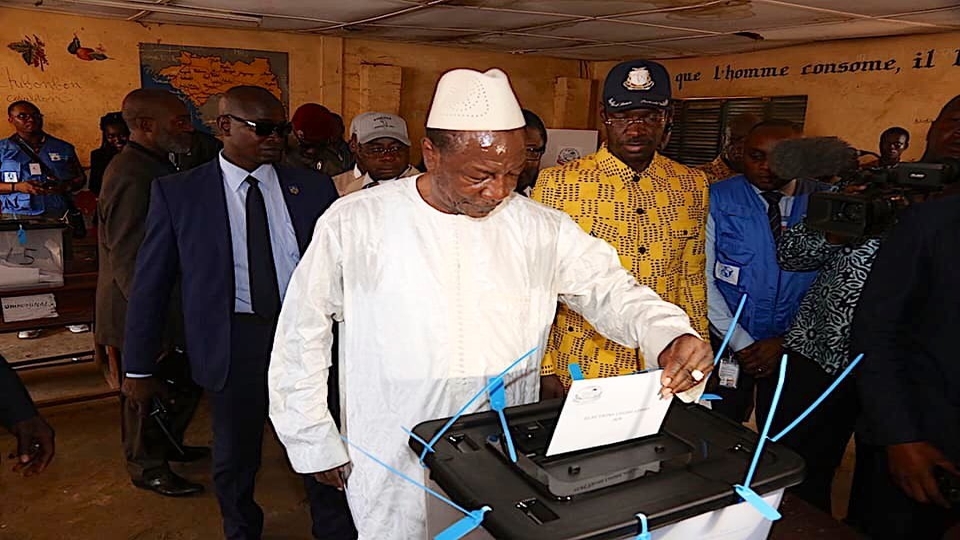The people of Guinea voted on March 22, Sunday, to elect a new parliament in the country amid the COVID-19 threat, violence and boycott calls. The polls were accompanied by a referendum on certain crucial amendments to the constitution.
More than 43 parties are contesting the elections to the 114-seat National Assembly of Guinea. President Alpha Conde’s Rally of the Guinean People had won the last elections in 2013 with 53 seats.
Voters also cast their vote in a referendum on constitutional amendments, including to increase the term of the president from the present five to seven years. If the amendments are approved, while the two-term presidential limit will remain, Conde (82 years old) may be able to contest again for two terms. His present term ends in December. Though Conde has not confirmed that he will contest, he has hinted that once the amendments are passed, his earlier terms will not count.
Other crucial amendments proposed are related to gender equality. These include the ban on female genital mutilation and underage marriages, and provisions on equal rights for men and women in divorce cases.
The figures for the final voter turnout and results are still awaited.
The main opposition parties – the United Democratic Forces of Guinea (UDFG) headed by former prime minister Cellou Diallo and the Union of Republican Forces – had given a call for boycotting the elections, objecting to the extension of the term of the president. They also accused Conde of electoral fraud and of displaying authoritarian tendencies.
Protests against the proposed amendments, led by the National Front for the Defence of the Constitution, have been going on in the West African nation since October 2019. According to media reports, the government has adopted severe repressive measures against the protests, leading to the death of more than 32 people so far.
While the elections were originally scheduled for March 1, they were postponed due to the allegations of fraud in the voter list. The regional group, the Economic Community of West African States (ECOWAS), had intervened and asked for the removal of around 2.4 million alleged fake names from the voter list.
Guinea, a former French colony, has a population of around 13 million, of whom nearly five million are eligible to vote.





